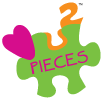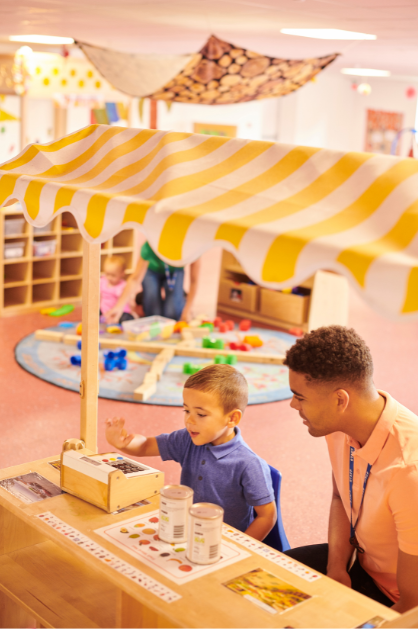“Let’s pretend we are at the grocery store! You get to be the shopper and I will use the cash register and check you out.”
Social play in the early childhood years gradually becomes more social and complex. Around age 4, children begin to engage in more sociodramatic play, creating their own rules and learning to cooperate. For many kids, this type of play can benefit from supportive guidance called “scaffolding”. Scaffolding can look like modeling appropriate social behaviors, turn-taking, communication, problem solving, and perspective taking.
Impact of Social Isolation
Over the past two years, peer interaction has been limited, As such, more students are coming into kindergarten lacking play and social skills. They have lost the experience and knowledge of appropriate ways to solve conflict, understand others, and simply play with peers. Many parents hired tutors to fill the gaps in the academic learning they feel was lost during this time, but what about play? Unfortunately, play is sometimes forgotten as an activity rich with learning potential. Play can build confidence, increase self-esteem, foster curiosity, and develop coping skills. In the end, play develops critical skills that will serve individuals across the lifespan.
Bridging the Gap
Beginning in September, Fun Friday at LoveU2Pieces will provide an opportunity for children ages 3-5 to practice a variety of skills through play! This small group setting is ideal for children to work with early childhood specialists on social emotional concepts, play skills, and making quality peer-to-peer connections, To start, in circle time, children will work on socially appropriate greetings, sing a song, and answer a question-of-the-day. Next, game time will focus on turn-taking, appropriate social interactions and winning/losing with grace. Finally, it’s free play time! Our early childhood leaders will provide scaffolding as needed while the children spend the majority of the session in the play kitchen, constructing with Legos, and many other activities.
Paving the Way
Need an idea to help your child on the playground this summer? Start an age appropriate conversation about making new friends on the playground! Picture books are a great catalyst for conversations! For instance, All About Friends, by Felicity Brooks uses straightforward language and illustrations to teach key playground skills. Using friendly body language, initiating conversations, and problem-solving strategies are some of the critical topics covered. Teaching children these skills can set them up for success on the playground and beyond.
About the Author
 Aimee Loveless is a St.Louis native, mom of two, and life-long educator who holds two M.Ed in TESOL and Curriculum and Instruction.
Aimee Loveless is a St.Louis native, mom of two, and life-long educator who holds two M.Ed in TESOL and Curriculum and Instruction.

